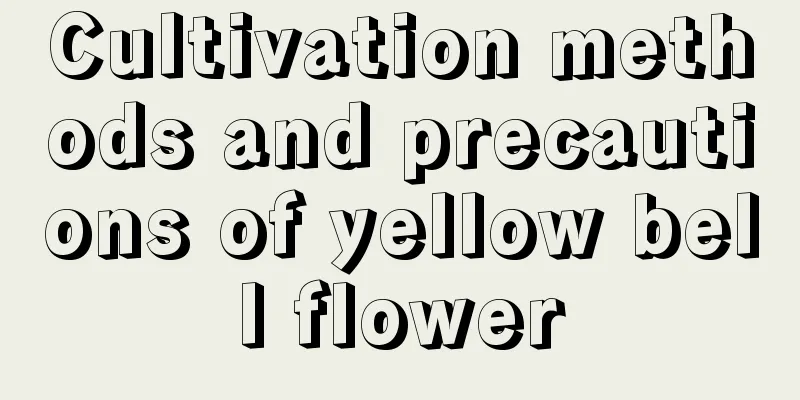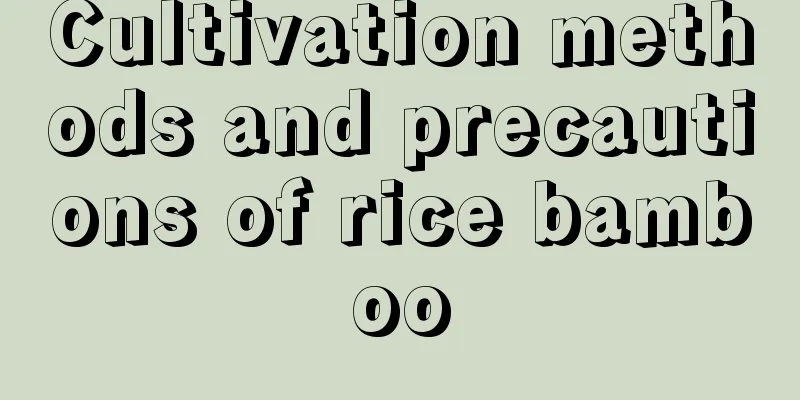How to fertilize peppers to increase yield (how to fertilize peppers to increase yield)

|
If peppers are grown and managed well, the fruiting period will be long and the yield will be high. However, many farmers have reported that their pepper yields are low and they don’t know why. During the growth process of peppers, top dressing is very important. If the fertilizer is used correctly and properly, the peppers will grow well and bear more fruits. So how should peppers be fertilized? Tips on Fertilization for High Yield of PepperDuring the growth of peppers, pay attention to the temperature and fertilization methods, so that peppers can bear more fruits, have better quality, and increase profits. In terms of fertilization, you can start from the following aspects: ① Water-soluble fertilizer in the seedling stageIt is necessary to apply fertilizer reasonably according to the growth period of pepper. It is recommended to use Germany's New Lulihen water-soluble fertilizer in the seedling stage, which can promote the growth of the root system of pepper seedlings and improve the stress resistance of pepper. During the flowering and fruiting period, high-nitrogen and high-potassium water-soluble fertilizers are used to increase the flowering and fruiting rate and have a good effect in preserving flowers and fruits. During the swelling period, special water-soluble fertilizers for peppers are used to improve the quality and yield of peppers with significant results. ②Organic fertilizerWhen planting peppers, fully decomposed organic fertilizer should be used as the base fertilizer, so as not to burn the roots. Only by maintaining a good root system can the peppers grow better. Decomposed sheep manure with secondary bacteria is a good choice, which can increase the organic matter in the soil without damaging or burning the roots. ③ Foliar fertilizerPeppers like warmth and are drought-resistant. The suitable temperature for their growth is about 28 degrees and the air humidity is about 70%. The fruit setting rate is relatively high. When the seedlings grow three leaves, start spraying foliar fertilizer 1-2 times with organic acid boron calcium foliar fertilizer. Calcium and boron are supplemented together to replenish nutrients in time, which can better promote the completion of flower bud differentiation and increase the fruit setting rate. Only by setting more fruits can the amount of fruits in the future be guaranteed. Spray 2-4 more times after flowering to meet the demand for boron and calcium throughout the growth period, improve quality, and reduce navel rot caused by calcium deficiency. Application of water-soluble fertilizer for pepperBecause the effective period of water-soluble fertilizer is generally about 15-20 days, when applying water-soluble fertilizer to peppers, you should first apply sufficient base fertilizer. For each acre of pepper, about 6,000 kg of farmyard manure can be applied before planting. For each acre of land, 40 kg of compound fertilizer, i.e. one bag, with a 20-20-20 ratio is enough. In addition, superphosphate and potassium sulfate can also be applied in appropriate amounts of about 30 kg, followed by topdressing with water-soluble fertilizer. 1. Half a month after transplanting, you can start applying Green Oasis 20-20-20+TE seedling fertilizer, use 5 kg, one bag per acre of land, and apply once every 20 days until before flowering. 2. After flowering, you can start applying 10-9-40+TE high-potassium fertilizer. If you find that the peppers are calcium deficient, you can apply medium-element fertilizer. This can increase the fruiting rate of the peppers. The secret to high yield is to apply high-potassium fertilizer as soon as possible after picking the peppers. What is the correct use of water-soluble fertilizer?1. Fertilizer concentration There is a strict concentration control for water-soluble fertilizers. Increasing the amount per mu or raising the concentration (adding less water) will result in nutrient excess to varying degrees. In mild cases, yellow leaves will occur, and in severe cases, the entire greenhouse eggplant crop will cause fruit cracking. 2. Fertilization interval The effective period of water-soluble fertilizer is generally about 15 days during the fruiting period. The reason why it is longer than the 20 days mentioned above is based on the average fertilizer requirement during the seedling stage. For Solanaceae crops, topdressing can be done once every 10-15 days. As an important component of ecological green agriculture, water-soluble fertilizer has repeatedly made great contributions to increasing crop yields. With the advent of water-fertilizer integration and standardized land and large-scale planting, the application of water-soluble fertilizer will surely lead the trend. |
>>: Make the garden soil loose and nutritious (how to turn ordinary soil into fertile soil)
Recommend
The role and efficacy of rubber tree
1. Watch This plant grows in a small pot, but it ...
How to care for the Demon Man succulent
Growing conditions of the Demon Man succulent The...
How to water the flowers so they don't die
What kind of water is best for growing flowers at...
How to cultivate Asparagus cochinchinensis
1. Soil It can grow well outdoors, so it has almo...
How often should you water your persimmon tree?
How often should you water your persimmon tree? G...
How to prune sunflowers, pruning method diagram
1. Topping and pinching The growth rate of sunflo...
Orchid soil ingredients
1. Nutritious ingredients 1. Leaf mold: Consideri...
Why is the crabapple flower unlucky?
1. Origin of the name A long time ago, there was ...
Is creeper harmful to the house?
1. What are the benefits Growth habit Ivy is a gr...
The meaning of Milan
1. Its meaning Its implication is that with love,...
How to Plant Pear Tree Seeds
1. Seed collection You can just use the pear core...
What is the plant of naked capsule?
1. Leaves The leaves of the naked capsule are sin...
How often should I water Schefflera
How often should I water Schefflera Schefflera is...
How to water potted Oncidium
1. How often should you water? The principle of w...
How to grow hydrangea
1. Lighting To grow hydrangeas, you need to creat...









